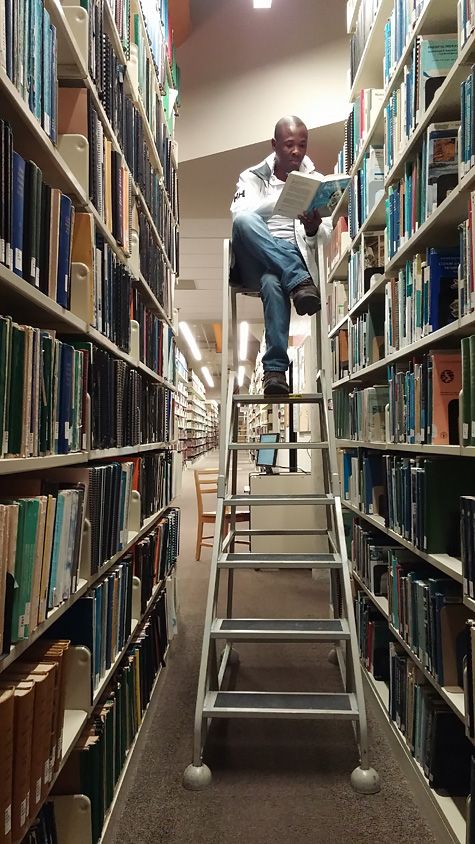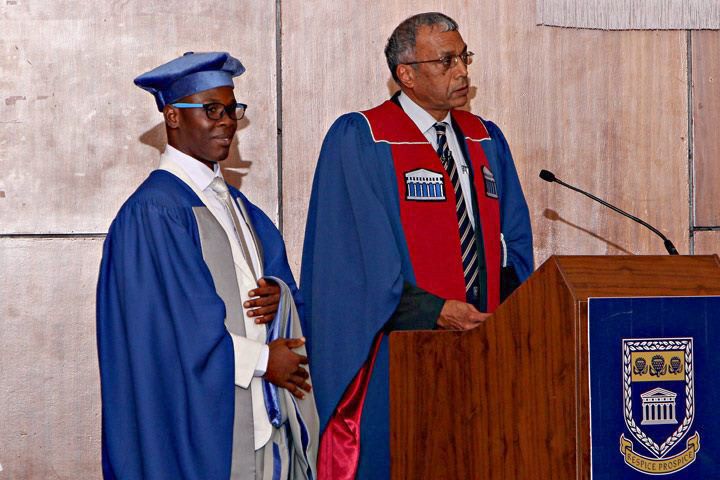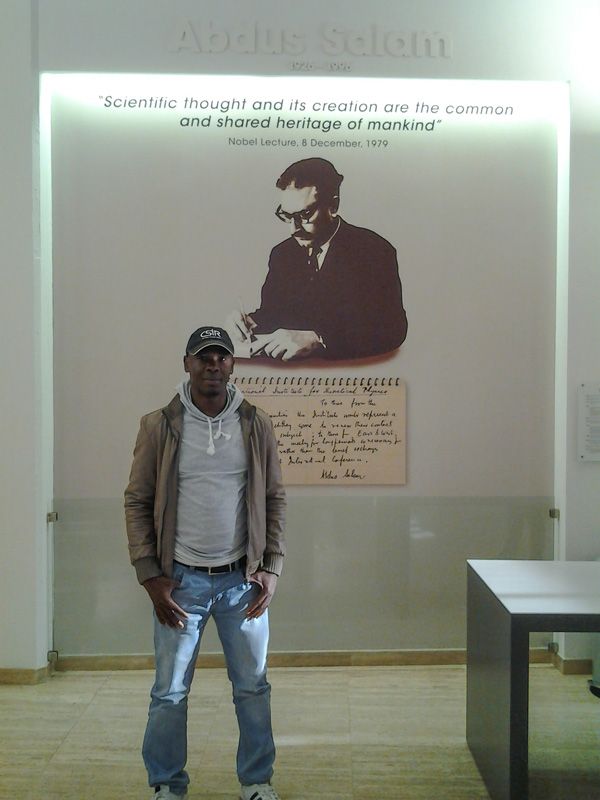Early Career Scientist Spotlight
Dr. Odutayo Raji Rufai
Space Physicist
Geospace Physics Laboratory
What is your research focus?
My research focus is on developing robust plasma models for understanding and predicting space weather effects. I investigate, both theoretically and numerically, the mechanisms responsible for generating plasma turbulence in different regions of the Earth’s magnetosphere.
Much of known matter in the universe exists as plasmas. Plasmas occur naturally, and predominantly occupy the Sun and interstellar space. The solar wind plasma is a stream of energized, charged particles (electrons and ions), flowing outward from the Sun, through the solar system at a high speed and temperature. The source of the solar wind is the Sun's hot corona. This solar wind plasma has a large influence on our planet, particularly on the ionosphere, the Earth's magnetic field, space weather and our telecommunication system. Several spacecraft missions (such as S3-3, NASA's Fast Auroral Snapshot Explorer (FAST), Sweden's Viking satellite, JAXA/NASA's Geotail, ESA's Cluster mission, NASA's Van Allen Probes, and NASA's Magnetospheric Multiscale (MMS) satellites) have been designed to monitor the transportation of the highly energetic particles (plasmas) from the Sun to the Earth. So, because of the amazing nature of space, I'm so passionate to use the information learned from these types of missions to study space electrodynamics.

Credit: Odutayo Raji Rufai
What inspired you to pursue a career in space physics?
The first inspiration was, of course, my older brother. He studied Mathematics for his Bachelor’s degree and later became a professional Accountant. He informed me that I can veer into any profession with a degree in Mathematics.
Next would be my PhD advisor, Prof. Ramesh Bharuthram, from the University of the Western Cape (UWC), South Africa. I simply wouldn’t be here at NASA if he declined to take me on as his student when he was serving as the Deputy Vice-Chancellor Academic at UWC. He gave me so many opportunities to work with his collaborators at the Indian Institute of Geomagnetism and South African National Space Agency (SANSA). I spent so much time at SANSA learning more about Space Science when I was studying at UWC.Did you always know that you wanted to be a space physicist?
No, I always dreamt of becoming an Electrical Engineer when I was growing up. I accidentally found myself in the Physics and Astronomy department at the University of the Western Cape 9 years ago, after some months of studying PhD in Mathematics. As I mentioned earlier, I was motivated and encouraged by Prof. Ramesh Bharuthram to study space plasma physics. He opined that, due to my background in fluid mechanics and computation, my skills would be of better use in space plasma physics and things have only been better for me personally and professionally since he nudged me.

Credit: Odutayo Raji Rufai
How did you end up working at NASA Goddard?
In 2013, I got an opportunity to participate in the Heliophysics Summer School in Colorado. I was the only participant from the African continent. That gives me a lot of inspiration. There, I got to know more about NASA, and I had it at the back of my mind that I wanted to work at NASA. After my graduation in 2014, I started looking for a postdoc position at NASA and, in 2019, I was awarded an NPP fellowship. Along the line, I found it difficult to obtain a position from outside the USA, so I went ahead to apply for a Green Card (self-petition) as an extraordinary research/professor (EB1 visa) to get into the USA. All of these factors afforded me the opportunity of working at NASA.
Tell us about one project that has been particularly impactful in your field.
My first paper, of course (Rufai et al. (2012) Low frequency solitons and double layers in a magnetized plasma with two temperature electrons. Phys. Plasmas 19, 122308). In this paper, we discussed oblique propagation of nonlinear electrostatic solitons and double layers in two electron temperatures. Using the Viking satellite data, we were able to show the conditions under which nonlinear structures can be found to exist both analytically and numerically in the auroral region of the Earth’s magnetosphere. Our theoretical investigations were able to predict the electric field fluctuations of about 100 mV/m, observed by Viking spacecraft in the auroral region of the Earth’s magnetosphere.

Credit: Odutayo Raji Rufai
What do you enjoy the most about your job?
Carrying out research, not only within my area of specialty, but also all other areas connected to it. I enjoy attending conferences, workshops, and networking to learn more and meet older generations of researchers in my line of research.
What do you like to do in your free time?
Playing and watching soccer, spending time with my family and travelling.
What are your future research interests and goals?
To expand and expatiate my research for deeper knowledge of the plasma turbulence and fluctuations on Earth and other planets, and be part of the first to come out with new findings to proffer solutions.
To share and pass on knowledge as much as possible and support students from indigent backgrounds.Biography
Home Town:
Ago-Iwoye, Ogun-State, Nigeria
Undergraduate Degree:
B.Sc. (Hon's). Mathematics, Lagos State University, Lagos, Nigeria
Post-graduate Degrees:
M.Sc Mathematics (Computational Fluid Mechanics), Olabisi Onabanjo University, Ago-Iwoye, Nigeria.
Ph.D (Space Plasma Physics), University of the Western Cape, Cape-Town, South Africa.
Graduate Courses (Scientific Computing), Memorial University of Newfoundland, St John's NL, Canada.
